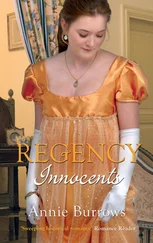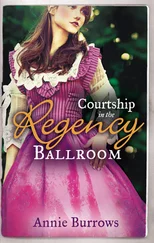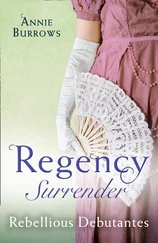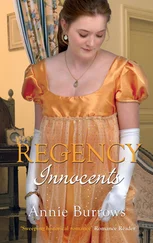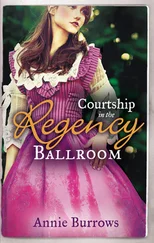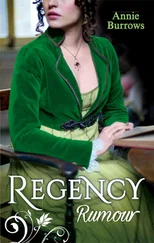Roland was used to her ways, but for a moment Miles was taken aback, then he grasped the hand. ‘We shall see. I have come to meet the little fellow.’
‘I do hope you can do something for him. I have promised the Earl my support in this, and as I know the family well, I shall be interested in what you think.’
‘Then why not come in with us?’
‘No, their house is very tiny, there will certainly not be room for three of us. I shall leave you to it. But come to Mandeville when you have finished examining the boy and let me know what you decide. I shall be pleased to offer you tea.’ She was speaking to the Captain, but was very aware of the man standing silently beside him. The Earl might have caused him to come, but she felt every bit as involved, more so because the Biggs family had been a pet project of hers long before his lordship appeared on the scene.
The Captain bowed. ‘I shall be delighted, ma’am.’
She handed the basket to Roland. ‘Please give this to Mrs Biggs.’ And then she left them to make their way up the garden path and knock on the door of the tiny cottage.
Charlotte had left Bonny Boy at the King’s Head on the other side of the green, but she was soon in the saddle and riding swiftly back to Mandeville. Her exchange with the Earl had been minimal, but it was nonetheless disturbing. She really must learn not to let him upset her. She was not a simpering schoolgirl, not even a girl at all, but a woman of three and twenty and she ought to be able to control her feelings.
Once home, she changed into a plain silk gown and paced about her first-floor sitting room, wondering if Roland would come with his friend. She had not specifically excluded him, but neither had she included him in the invitation. She was answered two hours later when both men rode up the drive and dismounted at the door. She saw them from the window, though she was careful not to let them see her. Heaven forbid they should think she was watching for them! She went down to the drawing room and sat down with a London newspaper in her hand until a footman came to announce them. She put it down and rose to meet them, ordered tea to be brought in and invited them to be seated.
‘Mrs Biggs asked me to return this,’ Roland said, offering her the basket he had been carrying. ‘She was effusive in her gratitude.’ He had never been inside Mandeville before and was struck by the opulence, the sense that no expense had been spared in its creation. The furniture was of the very highest quality, the sofas well upholstered, the carpets thick and the curtains well hung, the pictures and ornaments priceless. But it was too perfect; there was no warmth, no feeling that the house was lived in. It was simply a showcase for wealth. But he could understand why she would look down on Amerleigh Hall, the sprawling mish-mash of styles, with its rattling windows and draughty corridors. He could not imagine children tearing about Mandeville, sliding down the banisters, playing ball in the vast hall, as he had done at Amerleigh as a child.
She put the basket on a table and sat down again and they seated themselves opposite her. ‘How did you get on with Tommy, Captain?’ she asked.
‘He is very small,’ he said.
‘Of course he is.’ She laughed. ‘He is only six years old.’
He smiled ruefully. ‘I am used to soldiers, ma’am, little children are strangers to me.’
‘Oh, dear, then you do not think you can help?’
‘I did not say that, Miss Cartwright. I am willing to try, but I shall be learning as well as the boy.’
‘But you will need to teach his parents and siblings too, so they can understand him and he them.’
‘Of course. I notice they comprehend much of what he is trying to convey already. I think the way forward is to incorporate the signs he has already developed—no sense in asking him to learn new ones for familiar things. He is not able to spell, so it is no good trying to teach him letters. That will come later, at a more advanced stage. I need to think about it carefully.’
‘Surely many of the soldiers you taught could not read and write?’
‘That is perfectly true, but the words they needed to use are very different from those of a child. It is a challenge, a very big challenge.’
‘I am sure you are equal to it, Captain,’ she said, as the tea things were brought in and she busied herself with the teapot.
Roland watched the two of them dealing together so amicably and a strange sensation of unrest came over him, as if something he had within his grasp was slipping from him. ‘You will need a schoolroom,’ he said to Miles. ‘You cannot teach in the cottage with Mrs Biggs busy about her cooking and housework. You are welcome to use the schoolroom at Amerleigh. Kit it up with whatever you need.’
‘That might do for the time being,’ Charlotte said. ‘But in the long term, my lord, you will want it yourself.’
‘I am not about to go back to school,’ he said, laughing.
‘No, but you will marry soon and have children, then you will need it for them.’ She did not know why she said that. It was impertinent and she deserved a put-down. Why did she always invite his ire? It was as if she needed to scratch an irritating itch and, having scratched, was left with a sore place.
‘That is not imminent, Miss Cartwright.’ He was being carefully polite and that goaded her to scratch again.
‘No? I have heard you were about to make an offer.’
‘Then will you please tell your informant she is mistaken,’ he said firmly.
Bemused, Captain Hartley looked from one to the other and wondered how a simple conversation about a little deaf boy had suddenly become a cat-and-mouse game. ‘I am sure the schoolroom at the Hall will do very nicely for a start,’ he said.
They both turned towards him as if suddenly remembering he was there. ‘That’s settled, then,’ Roland said. ‘If all goes well, I should like to spread the word to other deaf children and their parents, make a little school of it.’
‘Let us see how it goes with one pupil first,’ Miles said.
The moment of dissension passed and they drank their tea and ate the bread and butter and the little cakes Mrs Cater had provided and Charlotte asked the Captain about his war experiences and showed herself to be far more knowledgeable than most ladies about the political situation. She agreed with Roland that a man like Napoleon Bonaparte would not be content with a life spent quietly on a little island. When he had capitulated, he had promised his followers he would return with the violets. ‘Have the allied powers made sure he cannot?’ she asked.
‘I doubt it,’ Miles said. ‘He has been allowed to keep a regiment and a ship and that is madness.’
‘Would you go back to the army, my lord, if he did show his face again?’ she asked Roland.
He smiled, remembering their previous conversation on the subject of his leaving. ‘It depends,’ he said carefully. ‘There is a great deal keeping me in Amerleigh at the moment.’
For once she did not rise to the bait, but sipped her tea and thought of Amerleigh without him. She would miss him if he ever left, but the reason she gave to herself, that she enjoyed their battles, was not the true one. Her thoughts went to that evening when he had kissed her hand and made her feel like a woman for the first time in her life. That was what she would really miss.
After the men had taken their leave and ridden away, Charlotte wandered into the ballroom and stood there a moment, then began humming a tune and dancing all by herself. But in her imagination she was not alone; the room was crowded and Roland was there and they were dancing together, hands linked, bodies moving in unison as they had at Lady Brandon’s soirée. ‘I will do it,’ she said, coming to a standstill and speaking aloud. ‘He will learn to rue the day he called me a hoyden.’
Читать дальше

